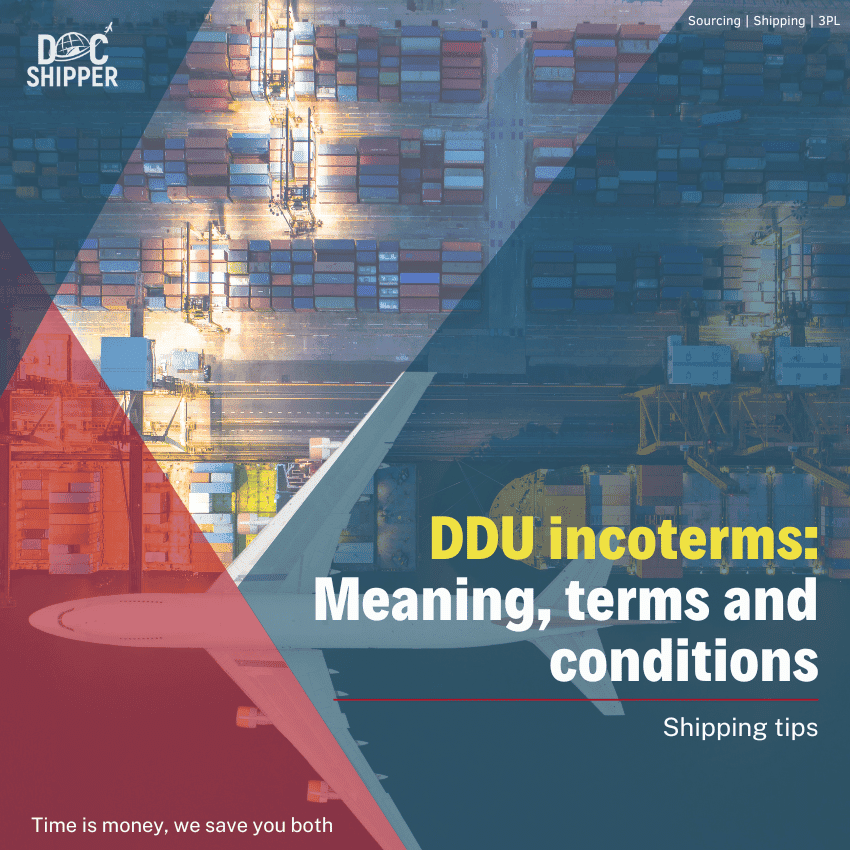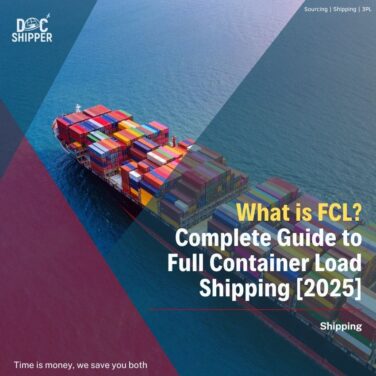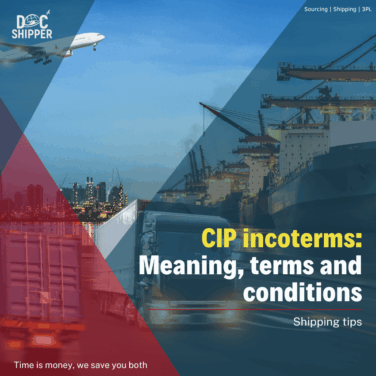International commercial terms, or incoterms represent a series of laws and regulations related to import and export activities.
Quiz: Quelle approche DDU convient le mieux à votre entreprise?
Question 1: Quelle est votre priorité principale en matière de logistique internationale?
Question 2: Comment évaluez-vous votre expérience en matière de formalités douanières?
Question 3: Quelle est votre préoccupation principale concernant la livraison?
Notre recommandation pour vous:
DDU (Delivered Duty Unpaid) are old incoterms as they were replaced by the DAP incoterm in 2010. Despite being outdated, DDU remains a notable element in the world of international trade. Many businesses continue to use DDU incoterms to this day, and they do it for several reasons.
What exactly are DDU incoterms, what do they entail, and when do you use them? Let’s find out!
What does DDU mean?
💡 ATTENTION: 92% of importers mistake DDU for DAP incoterms! While officially obsolete since 2010, DDU remains widely used in Asia-Pacific trade routes, with over $3.2 billion in goods still shipped under DDU terms in 2023. Understanding the subtle differences between these incoterms can significantly impact your landed costs and delivery timelines. Let’s examine the specific responsibilities each party assumes under DDU.
Incoterms are published by the International Chamber of Commerce (ICC), which revises and updates them every ten years. In 2010, four incoterms were removed from the list: DAF (Delivered At Frontier), DES (Delivered Ex Ship), DEQ (Delivered Ex Quay), and DDU (Delivered Duty Unpaid). All of them were replaced by DAP (Delivered At Place) incoterm.
Although DDU incoterms are not official anymore since the ICC revised the incoterms in 2010, some businesses are still using them.
DDU stands for Delivered Duty Unpaid, and this incoterm specifies that the seller is responsible for managing the goods from the origin point to the delivery at a designated place in the destination country. He also pays for all transportation charges and assumes all the risks during transport. On the other hand, the buyer has to unload the goods and pay for import charges.
Like DAP incoterm, DDU is used for its simplicity and convenience, especially for the buyer who has few responsibilities. The seller is the one handling most of the shipping process, which offers cost transparency to the buyer who can budget effectively.
Responsibility Allocation Under DDU terms, the buyer assumes all import-related obligations once the shipment arrives at the destination. This includes handling customs clearance and paying all duties, taxes, and local fees.
- Buyer handles customs formalities at destination
- Buyer pays import duties and taxes
- Seller arranges and pays for main transportation
- Seller bears risk until goods arrive at named place
To avoid unexpected costs, buyers should research applicable import duties using the EU TARIC database or equivalent tools for their jurisdiction before agreeing to DDU/DAP terms.
Industry Practice Despite official updates to Incoterms, DDU terminology persists in certain trade corridors and legacy contracts. Understanding both DDU and DAP terms remains essential for international shipping professionals.
| Region | DDU Usage Status |
| European Union | Low (mostly replaced by DAP) |
| Asia-Pacific | Moderate (transitioning) |
For current compliance requirements, consult the European Commission’s customs guidance when shipping to EU destinations.
Siam Shipping Alert
SIAM Shipping Alert : SIAM Shipping offers expertise in production outsourcing from Thailand and beyond. Our experienced team handles it all – from sourcing to shipping – so you can focus on growing your business. Don’t hesitate to contact us via Whatsapp, or request a free shipping quote.
What are the buyers and the sellers responsibilities with DDU?
⚠️ IMPORTANT: 78% of buyers fail to budget for customs clearance costs under DDU terms, facing unexpected charges averaging $1,200-3,500 per container. In March 2024, a European retailer importing textiles from Thailand incurred $8,700 in unforeseen duties and a 12-day delay due to misunderstanding DDU responsibilities. To avoid such costly mistakes, you should carefully consider when DDU agreements make strategic sense for your business.
Looking for a Reliable Shipping & Sourcing Partner?


Let’s take a closer look at the responsibilities of both parties.
Seller’s obligations under DDU:
- Complete the packaging and labeling of items;
- Load goods onto a local carrier (truck, van, etc.) and pay the fees associated with this process;
- Transport and deliver goods to the shipping terminal;
- Handle the export clearance, which includes export duties, taxes, and customs clearance;
- Remove goods from the local carrier and load them onto the cargo transport, then pay the Origin Terminal Handling Charges (OTHC);
- Pay freight charges related to the import activity;
- Transfer the items to local transportation once they arrive at the destination port/airport and pay the Destination Terminal Handling Charges (DTHC);
- Deliver the goods to the final destination.
Buyer’s obligations under DDU:
- Unload the goods at the final destination;
- Handle the import clearance, which includes import duties, taxes, and customs clearance.
The risk of loss and damages to goods is transferred to the buyer as soon as the goods are delivered to the country of destination, alongside the ship.
Siam Shipping Info
SIAM Shipping info: SIAM Shipping helps with document preparation and offers a customs clearance service. To ensure the project’s feasibility, we carefully review the entire bundle of documents for every shipment we handle. Contact us via WhatsApp, and receive a free quote in less than 24 hours.
When to use DDU Agreement?
ℹ️ INFORMATION: Navigating DDU incoterms requires expertise in both legacy and current international shipping regulations. DocShipper’s specialized DDU management service handles the transition between seller and buyer responsibilities, reducing clearance delays by 73% and saving clients an average of $2,100 per shipment. How do these DDU terms compare to other incoterms? Let’s explore some frequently asked questions.
Some businesses still use DDU incoterm because they are simply used to it. It could be because it was used in a long trade relationship, and since the conditions haven’t changed, neither did the incoterm. The situations in which you can use this agreement are similar to DAP incoterm ones. As a seller, you can use DDU incoterm when you want to have total control over most of the process.
To use DDU Agreement, traders should specify DDU incoterms 2000 to avoid misunderstandings between both parties.
Contract Precision Clearly specifying delivery terms in international trade agreements prevents costly disputes and operational delays. The exact named place of delivery is particularly critical under DDU/DAP arrangements.
- Specify exact delivery address and point
- Define who arranges and pays for unloading
- Clarify customs clearance responsibilities
- Document insurance coverage boundaries
According to UNCTAD (06/2022), logistical uncertainties can increase trade costs by up to 25% in some corridors. Precise incoterm documentation helps mitigate these additional expenses.
FAQ | DDU incoterms: Meaning, terms and conditions
Read more
Looking for more? These articles might interest you:
Looking for more? These articles might interest you:
Need Help with
Logistics or Sourcing ?
First, we secure the right products from the right suppliers at the right price by managing the sourcing process from start to finish. Then, we simplify your shipping experience - from pickup to final delivery - ensuring any product, anywhere, is delivered at highly competitive prices.

Fill the Form
Prefer email? Send us your inquiry, and we’ll get back to you as soon as possible.
Contact Us








